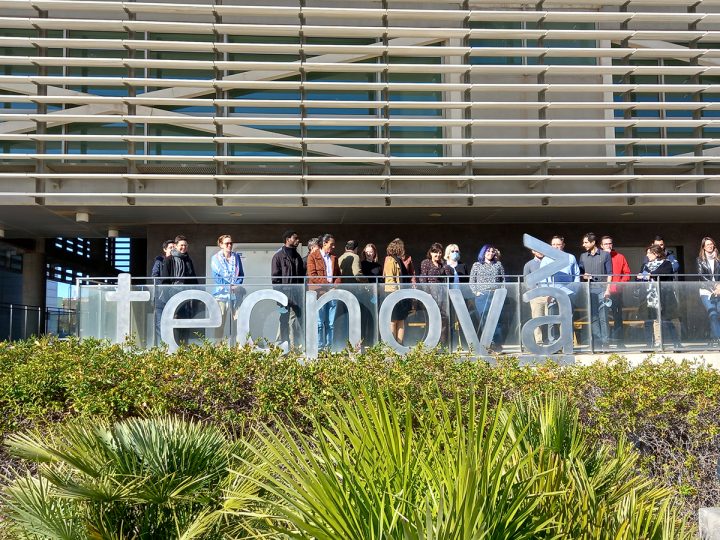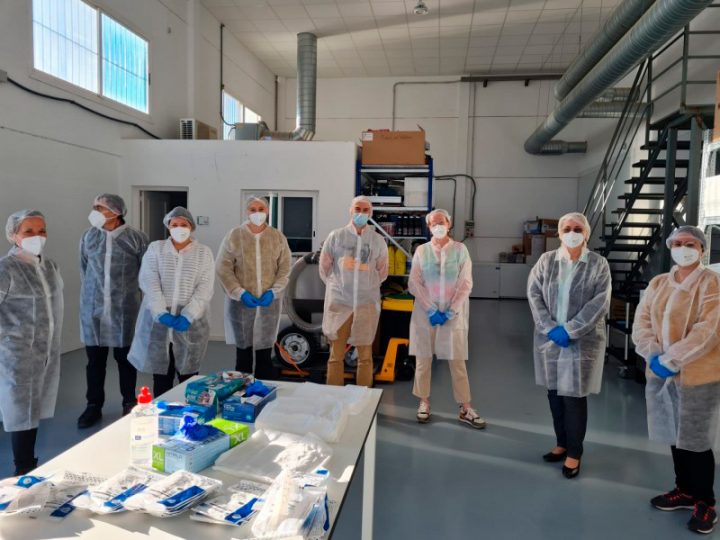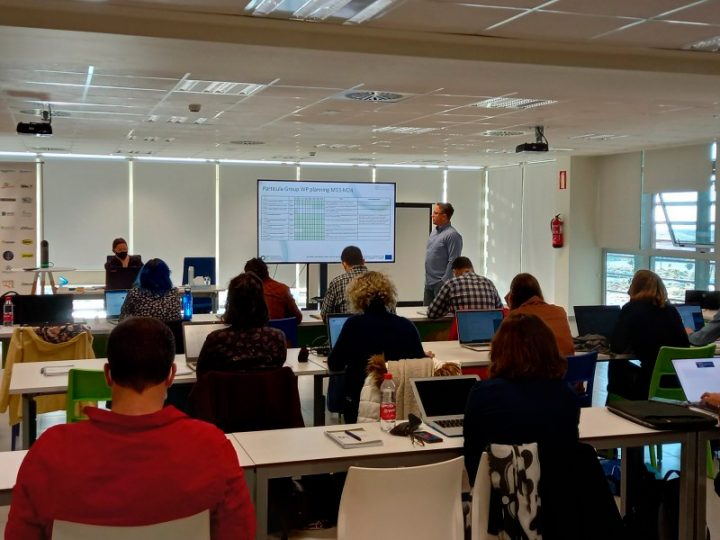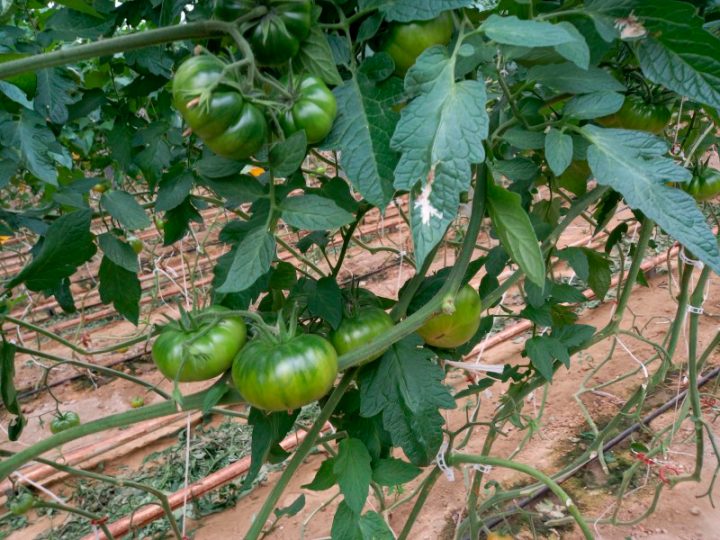Productive RUSTICA project meeting and inspiring field visits in Almeria
The RUSTICA project started in January 2021, with as key objective research on the processing of fruit and vegetable waste into bio-based fertilizers. Due to the Covid crisis, the consortium could not have any live meeting so far. But last week, finally, a real project meeting took place in Almeria.
We look back at an intensive 3-day meeting, which demonstrated the added value of discussion around a table as well as the importance of field visits in understanding regional bottlenecks and challenges for the circular bioeconomy in the food value chain.
Despite the pandemic situation, all the necessary safety measures were taken into account and almost all partners were represented in Almeria. Even the Colombian partner, CIAT, managed to attend the project meeting. The consortium chose a mix of live meetings, hybrid meetings and field visits. The choice of Almeria as location for our first real project meeting is grounded on the fact that three RUSTICA partners have their headquarters in this region. Furthermore, the fruit and vegetable sector is the most important economic sector in Almeria.
The diverse challenges of the RUSTICA project were on the agenda. Since the start of the project, RUSTICA activities have been developed in the five selected regions located in Italy, Spain, France, Belgium and Colombia. During our meeting, we discussed the feedback from the involved stakeholders in the regions. We reflected on how to guarantee the stakeholders’ involvement and hence also on the added value of our project for our target audience.
A first field visit took place at Tecnova (Fundación para las Tecnologías Auxiliares de la Agricultura), who also hosted the project meeting. Tecnova is a RUSTICA partner, that is specialized in services for the agricultural sector in the region. They carry out analyses and develop new technologies, such as innovative machines for the selection of fruit and vegetables and the organization of tasting panels for evaluating the quality of new crop varieties. The consortium visited the laboratories and development rooms of Tecnova.
The next field visit took place at Cehegín, over 200 km away from Almeria, at Entomo Agroindustrial. Entomo is specialized in the use of insects for both the valorization of waste streams and the production of insect-based byproducts. Entomo was found in 2009 and well networked with the regional fruit and vegetable sector. Entomo offers services in research and innovation based on the use of insects. The RUSTICA team of Entomo guided us around in their facilities, with even the opportunity to feel the insects at work. Furthermore, we walked through the entotainer, a container with Entomo technology for mobile pilot trials.
BioSabor welcomed the RUSTICA team at their production room, where top quality vegetables – including tomatoes, cucumbers and eggplants – pass a selection process before being packed and ready for the market. BioSabor also has a processing unit, producing delicious gazpacho. Symbolically, our last stop before heading to the airport, was a greenhouse. Almeria region is characterized by an impressive number of greenhouses. We had the honor to visit one of BioSabor’s greenhouses, where organic tomato production and innovative technology are key values.
In summary, it was an enormous challenge to organize an international consortium meeting at a moment the world, including all European member states, suffer from severe covid outbreaks. Yet, more than ever, innovation and sustainability in the food system is needed. We experienced during these 3 days that face-to-face dialogues and field visits remain an undisputable necessity in making progress to develop a more efficient circular bioeconomy.





